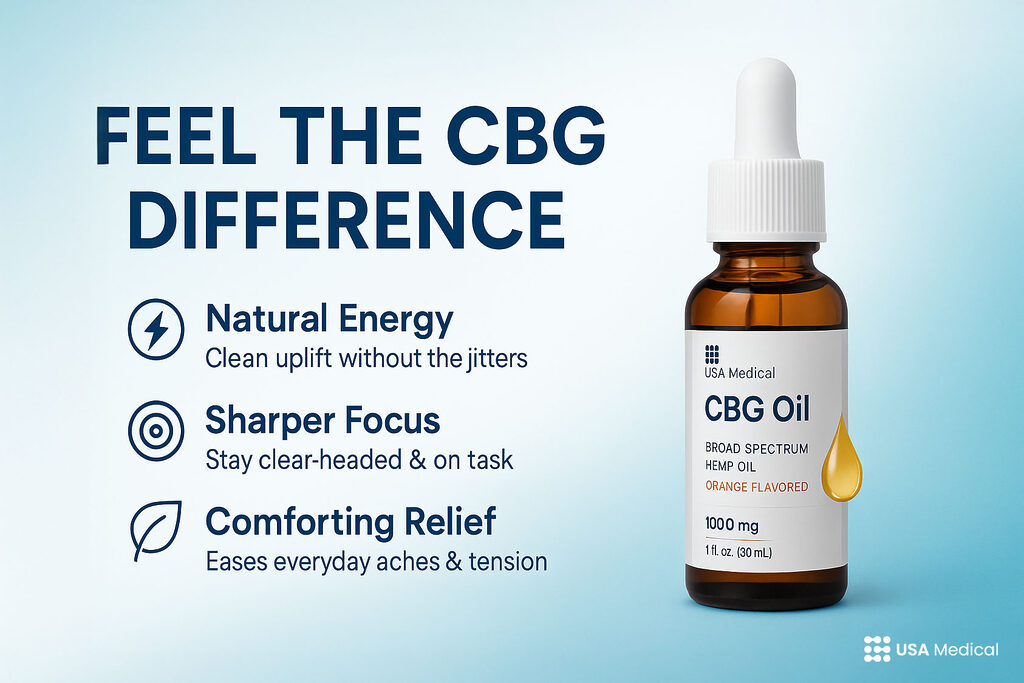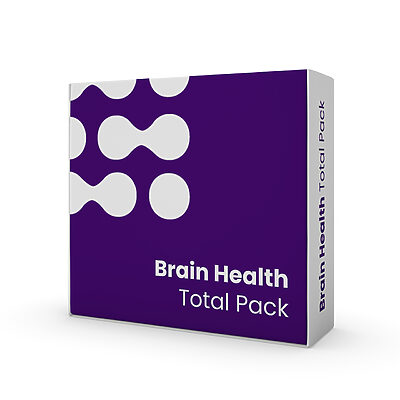
Breaking: CBG Week Starts Today, 50% Off Through Sunday, Sep 14
Save 50% on USA Medical CBG this week. Use code
By Jake Crossman (CNC-NASM), Nutrition Specialist; Holistic Health Coach; Managing Partner, USA Medical

In this episode, Jake discusses 3 simple strategies to help you sleep better tonight.
Struggling with bad sleep or waking up without energy? You’re not alone, and the good news is, you can fix it. As a health coach, I’ve helped countless clients improve their sleep, and I’m sharing the exact strategies that work—not just theory, but actionable steps you can start tonight.
There are three layers to my sleep strategies: the physical, the mental, and the emotional (or spiritual). Let’s dive in.
Your sleep environment is everything. If your room isn’t helping you sleep, it’s actively working against you. Start by addressing three critical factors: temperature, light, and noise.
Cooler temperatures are essential for quality sleep. Every major sleep study shows that a cooler room promotes deeper rest. I take this to the extreme and set my thermostat to 55°F every night.
It might sound extreme, but I sleep like a baby because of it. If that’s too cold for you, start small—drop your thermostat by a couple of degrees tonight and see how you feel.
Your room should be pitch black. Even small amounts of light, like LEDs from clocks or electronics, can disrupt your sleep. The easiest way to test your room’s darkness?
Close your eyes and then open them. If there’s any noticeable difference, it’s not dark enough.
Use blackout curtains or invest in a high-quality sleep mask. I prefer a sleep mask because I like to wake up to natural sunlight.
Noise triggers your brain’s ancient fight-or-flight response, keeping you alert even while you’re trying to rest.
Earplugs, white noise machines, or soundproofing solutions can help eliminate disruptive sounds. Personally, I combine earplugs with a fan for maximum quiet.
Magnesium is essential for deep sleep because it supports brain detoxification during the night. Most people are deficient in magnesium, which can lead to restless sleep.
I recommend taking magnesium glycinate before bed—it’s gentle on your stomach and highly absorbable. Pair it with water to support hydration and detoxification. And if you’re worried about waking up to pee, don’t worry—you can train your body to manage that.
What you do before bed has a massive impact on your sleep quality. Here’s how to optimize your mental habits for better rest.
Blue light from phones, TVs, and laptops suppresses melatonin production, the hormone that signals your body it’s time to sleep. Beyond the light, using these devices in bed creates a mental association between your bed and activities other than rest.
To fix this, keep screens out of the bedroom. By reserving your bed exclusively for sleep, you teach your brain that getting into bed means it’s time to rest.
Your bed should be a sanctuary for sleep. Avoid working, eating, or even reading in bed.
This separation reinforces the mental connection between your bed and sleep, making it easier to fall asleep and stay asleep.
The emotional or spiritual layer of sleep is all about quieting your mind. Racing thoughts and lingering worries are some of the biggest obstacles to restful sleep.
One of the most powerful tools I teach my clients is the Let It Go meditation.
Before bed, sit quietly and let your thoughts come and go without judgment. If something important pops up, write it down and set it aside. This process helps clear your mind and reduces anxiety, making it easier to relax.
Over time, this practice becomes second nature, allowing you to fall asleep faster.
A bedtime routine signals to your body that it’s time to wind down. Whether it’s drinking herbal tea, taking a warm shower, or meditating, the specific activities matter less than doing them in the same order every night.
Consistency is key—over time, your body will begin producing melatonin as soon as you start your routine.
Your circadian rhythm—the internal clock that regulates your sleep-wake cycle—relies on sunlight to function properly.
Getting sunlight on your face first thing in the morning helps reset your rhythm, signaling your body that it’s daytime. Aim for 2–10 minutes of sunlight exposure as early in the day as possible.
Better sleep is within your reach. Start tonight by lowering your room temperature, darkening your bedroom, or trying the Let It Go meditation. Small, consistent changes can lead to big results.
If you’re ready to improve your sleep, I’m offering free coaching calls to help you create a personalized sleep plan. Text me at 323-352-9131 with “Jake, I want to sleep better,” and we’ll get started.
For more tips and strategies, check out the full episode of the USA Medical Podcast.
It’s packed with actionable insights to help you sleep better every night. Then, share this with someone who could use better sleep—they’ll thank you, and so will I.

My name is Jake. I'm a certified health coach, accredited nutritionist, and I want to make health easier for everyone.
We have the 'most advanced healthcare' in history, yet millions are still sick and on more medication than ever. My goal is to make holistic health more achievable for everybody.
I read all comments, so please let me know what you think!
These statements have not been evaluated by the FDA. USA Medical products are not intended to diagnose, treat, cure, or prevent any disease. Please consult with a healthcare professional before use.

Save 50% on USA Medical CBG this week. Use code

If your goal is comfortable, consistent relief, not a rollercoaster,

If you’re wondering whether magnesium glycinate for sleep is worth

What we mean by IBD, IBS, and Crohn’s IBD is

USA Medical CBG Oil works quickly and keeps working for

What Is CBG Oil? The Cannabinoid Behind the Buzz Cannabigerol


In stock | Free shipping

In stock | Free shipping

In stock | Free shipping

In stock | Free shipping

In stock | Free shipping

In stock | Free shipping

In stock | Free shipping

In stock | Free shipping